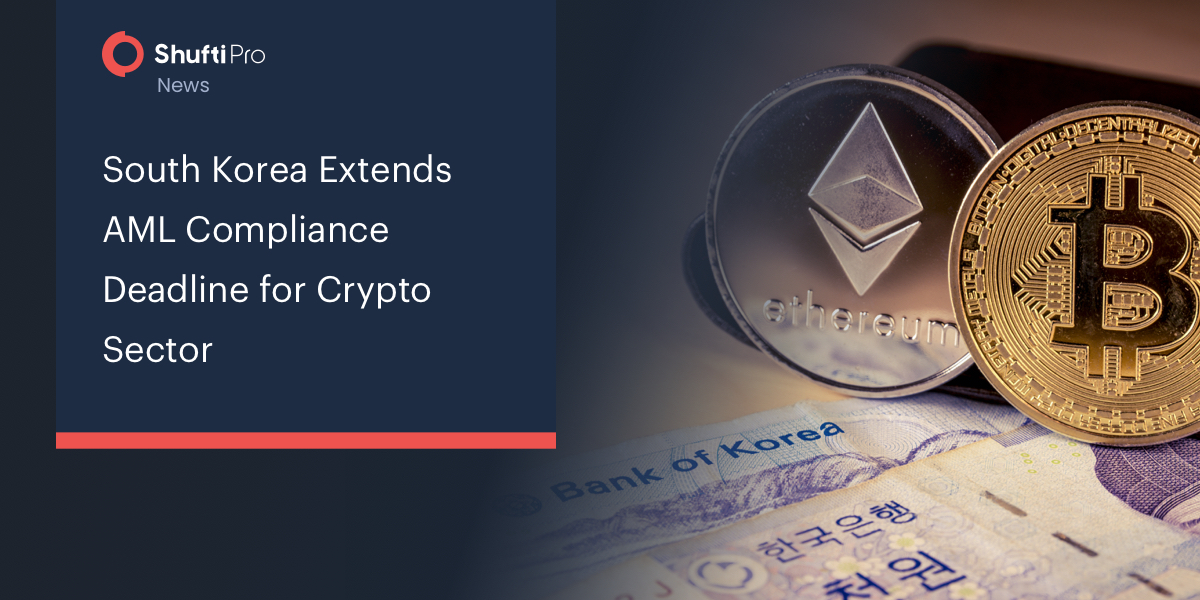South Korea Extends AML Compliance Deadline for Crypto Sector

The deadline has been extended to ensure regulators are able to process all the applications submitted before the 24 September deadline.
Korea’s Financial Services Commission (FSC) has extended the deadline of its guidelines that require financial institutions, including crypto exchanges, to monitor virtual asset transactions.
The new AML rules, which took effect from 25 March 2021, stated that all crypto businesses have until 24 September to register themselves with Korea Financial Intelligence Unit (KoFIU) and were also liable to comply with all necessary AML requirements (e.g. Customer Due Diligence (CDD), reporting of suspicious transactions, registration of real-name accounts).
Suggested Read: Updated Crypto AML Rule in South Korea Set to Take Effect from 25th March
The date has been extended in hopes that all applications submitted prior to the 24 September deadline would be processed by the regulators. The new effective date has been set as 31 December 2021, reports Yonhap
Until now, only the four largest crypto exchanges, namely Upbit, Bithumb, Korbit, and Coinone, were meeting the real-name account requirement, preventing third-party and anonymous deposits or withdrawals.
The Korea Internet and Security Agency (KISA) also revealed that only 20 crypto exchanges are so far ISMS certified – a certification that indicates that a company has met all IT and data protection standards. As ISMS certification is required to form partnerships with banks, 30 other applications are in line waiting to be processed.
Additionally, the FSC has issued a notice prohibiting all crypto exchanges from engaging in the cross-trading of virtual assets. This notice has been issued to prevent price rigging and improve the transparency of transactions.
The notice also clears up the air on risk assessment procedures by stating all banks and crypto exchanges are mandated to perform a risk assessment on customers.
Banks have the responsibility to ensure cryptocurrency exchanges segregate the customer deposits and comply with AML regulations, including the submission of suspicious transaction reports to KoFIU.
For the crypto exchanges that fail to report to the KoFIU and are deemed as highly prone to money laundering, guidelines have been passed for banks to refuse or terminate their transactions.
Local news reports have also stated that many Korean crypto exchanges have either temporarily stopped or permanently suspended the trading of high-risk cryptocurrencies, including so-called ‘privacy coins’.
Suggested Read: South Korea to Penalize the Non-Compliant Crypto Companies

 Explore Now
Explore Now













